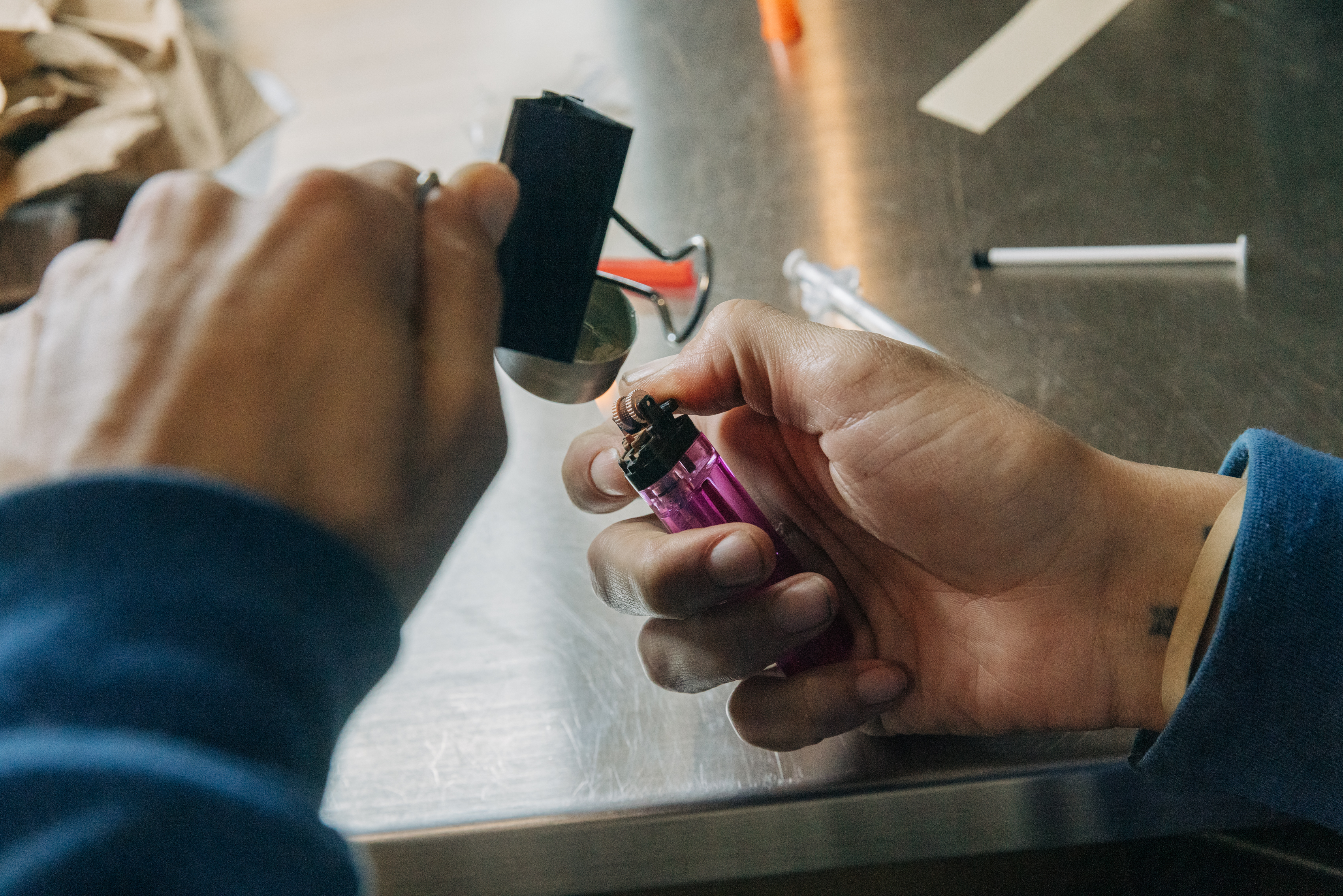Decriminalizing Drugs Doesn’t Increase Fatal Overdoses: Study
The study, which looks at states that have decriminalized drugs, comes amid public backlash to progressive drug laws.

A new study found that states that decriminalized drugs did not see an increase in fatal overdoses, countering a narrative that’s taking hold as part of a wider backlash against progressive drug policies.
The study, conducted by researchers at the New York University Grossman School of Medicine and published in JAMA Psychiatry, looked at a year’s worth of overdose data in Oregon and Washington, which both decriminalized possession of drugs in 2021. It found no evidence linking an increase in overdose deaths to those decriminalization policies.
However, overdoses in those states didn’t decrease either; some harm reduction experts say that’s because drug decriminalization is just part of a larger strategy to curb deaths that also requires a safe and regulated supply of drugs.
The study, which was funded by the Centers for Disease Control and Prevention, comes as popularity for Oregon’s drug decriminalization policy is waning. Washington has already walked back its decriminalization measures and British Columbia, Canada, which also decriminalized drugs, is placing new restrictions on where people can use.
Oregon enacted Measure 110 in February 2021, meaning people found with small amounts of drugs will no longer face criminal penalties, but will pay a $100 or or complete a health screening. A February 2021 Washington Supreme Court decision, meanwhile, declared it unconstitutional to make drug possession a felony with the state later downgrading those offenses to misdemeanors.
While overdoses didn’t go up in those states because of decriminalization, they still went up. Oregon’s went from 18.7 per 100,000 people to 26.8 per 100,000 people while Washington went from 22 per 100,000 people to 28.1 per 100,000 people in 2020 and 2021, respectively. But the study compared the states’ increases with a control group made up of data from similar states that didn’t decriminalize drugs and found that the differences weren’t statistically significant.
Corey Davis, an assistant clinical professor at NYU Grossman School of Medicine and senior study author, said the increases in Oregon and Washington could potentially be explained by a few factors, including that both states had lower overdose rates to begin with, and that many drug users there consume stimulants as opposed to opioids.
“You can definitely overdose and die on cocaine or methamphetamine, but it's not as prevalent as overdosing and dying on opioids,” he said. But fentanyl, which initially was more prominent in the east, has now infiltrated the drug supply all over the country. “Fentanyl is just so cheap and available that people are starting to use fentanyl who didn't before.”
While the data challenges the notion that decriminalization is worsening the overdose crisis—and another study by Davis and his colleagues found it hasn’t worsened violent crime—the policy still isn’t popular.
In May, Washington passed a law walking back its reforms. A poll published in August about attitudes towards Measure 110 found that 56 percent of respondents supported completely repealing it, while 64 percent felt parts should be repealed.
Davis said he thought the study might show overdose rates decreasing because going to jail can increase the risk of an overdose. That’s because people’s tolerances for drugs are lower when they get out of jail.
However, he noted that a key part of Oregon’s plan—using cannabis tax money for addiction treatment and harm reduction—hadn’t been implemented when the study was taking place. That funding is still rolling out.
Davis said the contaminated drug supply is the main problem but discussion of having a safe supply of drugs in the U.S. is a “political non-starter.”
“If you can take those people who are getting something that is very dangerous and that oftentimes they don't want and replace it with some sort of regulated opioid, I mean, I don't know any serious people who would say that that probably wouldn't reduce overdose deaths,” he said.
Other state-level measures, such as increased access to naloxone or methadone for people with opioid-use disorder will have an impact, he added, but not enough to reverse the staggering number of deaths caused by fentanyl.



